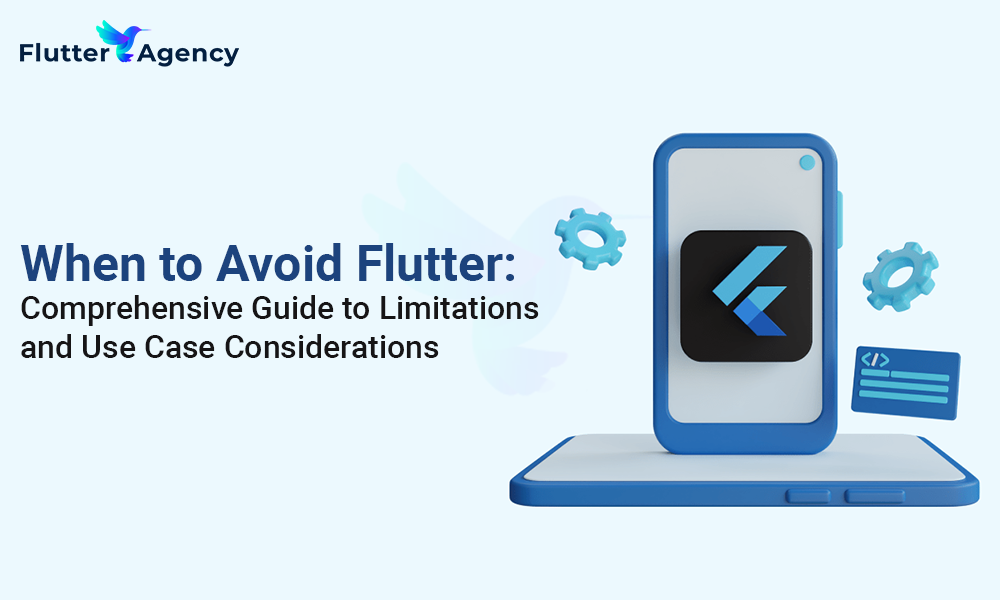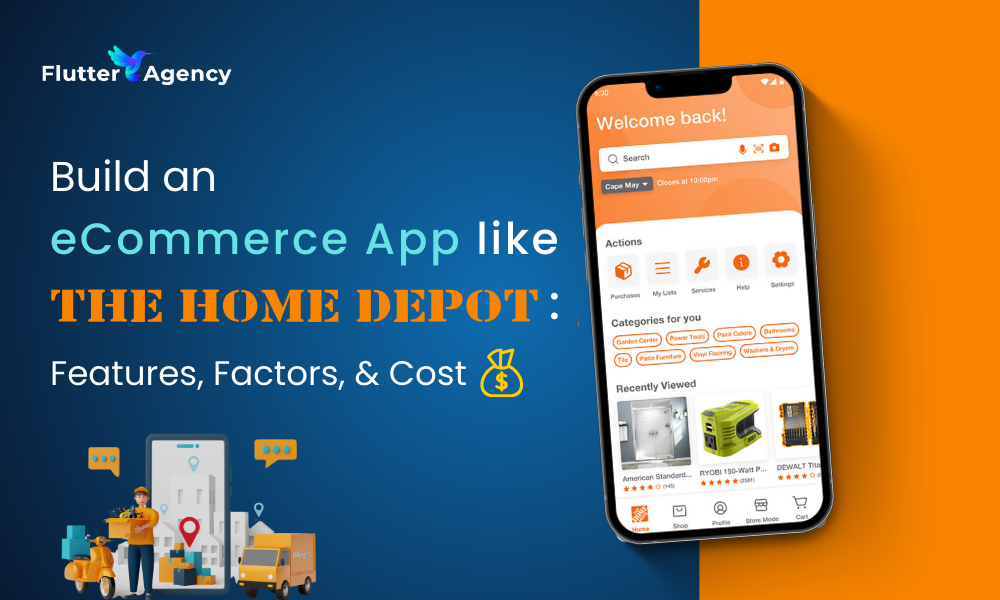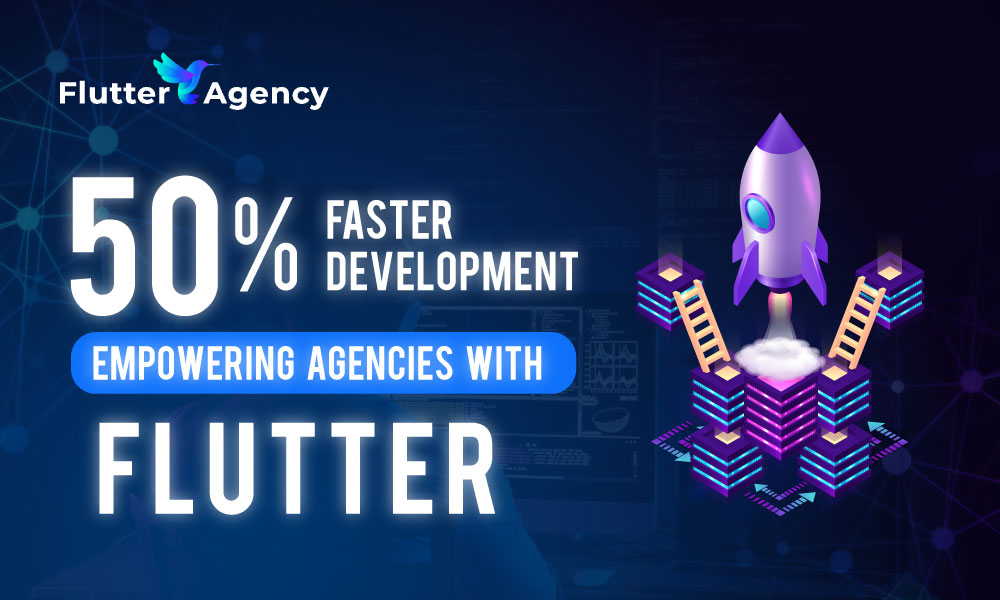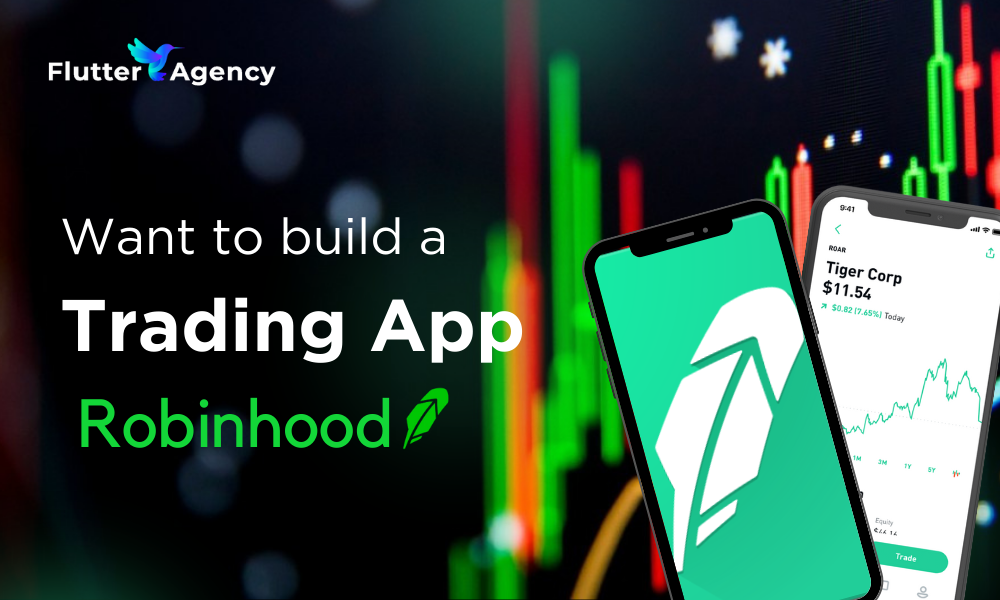When Not to Use Flutter: A Complete List of Cases
In the field of mobile app development, Flutter is rapidly taking off. It has drawn the interest of developers and companies alike because of its reputation for producing aesthetically pleasing and highly functioning apps across various platforms. But is it the answer to every problem with mobile apps? This all-inclusive guide seeks to answer that query.
In addition to delving into the settings where Flutter excels, this article examines the shadows where it might not be the best option. Flutter is no exception regarding the idea that a single development framework might be a one-size-fits-all solution. Advantages and drawbacks are also present. When navigating these considerations, hire Flutter app developer who can strategically leverage the framework’s strengths and mitigate potential limitations for optimal application development becomes crucial.
Flutter’s Drawbacks and When Not to Use It
Though Flutter has many benefits, there are several situations in which there might be better options. Understanding its limitations will help you make the best choice possible for your project.
1. Restrictions on the platform
Wearables devices: While developing apps for wearables, especially for Apple Watch, you might not be able to utilize the speed and functionality of Flutter fully.
Android TV and Smart TV: Development apps for these platforms requires an in-depth rethinking of control logic. Android TV is mainly controlled by remote control input, while Flutter is designed to work with touchscreens and mouse clicks. The difference leads to more excellent development times and maybe inconsistent user experiences.
Play Market with instant apps: Instant apps must have rapid reactions. Even with optimization, the inherent size of Flutter apps frequently exceeds that of native apps. Google has established a strict 10MB limit, so Flutter apps with many features or packages may find it challenging to stay under this limit.
2. Size Consideration
Size constraints may be a concern when considering Flutter. Flutter apps can have a larger file size than native applications, impacting download and installation times, especially in regions with slower internet connections. Additionally, if the app requires minimalistic functionality or specific platform-native features, the overhead introduced by Flutter might outweigh its benefits. In such cases, opting for platform-specific development could be more efficient. To navigate size considerations and ensure optimal outcomes, hiring a skilled Flutter app development team becomes essential for strategic decision-making and efficient utilization of the framework’s capabilities.
3. Connectivity and technical issues
Bluetooth connection issues: There are occasionally several issues while utilizing Flutter to connect to hardware via Bluetooth. Developers may experience issues with connectivity and performance as Flutter does not directly use the device’s native Bluetooth capabilities. Compared with native frameworks, it makes the app development process more complex but still accessible.
Challenges for web development: Although Flutter for Web created a lot of excitement, a few things could be improved with SEO and loading performance. Furthermore, programmers who want to develop complex web experiences may need help. Flutter’s restricted WebView supports different new system features: As operating systems develop, new features are added that application developers can take advantage of. Compared to native SDK alternatives, Flutter’s cycle for implementing these capabilities is noticeably slower. One example is that after the release of iOS 13, which enabled dark mode, it took more than two years for the half-baked launch of the Dark Mode for iOS in Flutter. In the same way, Flutter has yet to provide performance on pace with the 120+ Hz screens found on modern smartphones.
Using Native code: Kotlin or Swift are examples of native languages that must be used to recreate some native UI elements in Flutter. For instance, Flutter implementations of video players may look different from system ones, particularly on iOS.
4. Increased Development Costs
The cost of Flutter development tends to be higher than that of Native development. This is because creating cross-platform applications with a unified look and feel requires particular knowledge and is challenging. It can also be difficult to find senior Flutter developers. Although the community is expanding, it is still relatively fresh, and as a result, experienced professionals in this field are in high demand, which may result in higher prices.
Suitable Applications for Flutter Development
Flutter’s strengths make it particularly well-suited for developing the following types of mobile applications:
1. E-commerce Apps: Flutter’s ability to create visually appealing and performant interfaces makes it ideal for building e-commerce apps that provide a seamless shopping experience for users.
2. Social Media Apps: Flutter’s cross-platform capabilities and declarative UI framework are well-suited for developing engaging social media apps that connect users across various devices.
3. Gaming Apps: Flutter’s high-performance rendering and cross-platform compatibility make it a viable choice for building casual and mid-core games that can run smoothly on a wide range of devices.
4. Educational Apps: Flutter’s declarative UI and interactive capabilities are ideal for creating engaging educational apps that provide a rich learning experience for users.
5. Productivity Apps: Flutter’s efficient development process and ability to create intuitive interfaces make it suitable for building productivity apps that streamline users’ tasks and workflows.
Thus, Flutter’s strengths in cross-platform development, high performance, declarative UI, and a rich ecosystem make it a compelling choice for building a diverse range of modern mobile applications.
Why Flutter is a Good Choice for Mobile App Development?
Flutter is a fantastic option for developing mobile apps for the following reasons:
Fast development: Flutter is a framework that enables developers to write code for both iOS and Android platforms using a single codebase. This can significantly reduce the development time and cost of mobile apps.
High performance: Flutter apps are compiled into native code, meaning they can run as fast as native apps. This contrasts with other cross-platform frameworks like React Native, which can have performance issues.
Rich UI: Flutter provides a wide range of widgets and tools for creating rich and engaging user interfaces. This makes it a good choice for developing apps that must be visually appealing and easy to use.
Hot reload: Flutter’s desirable reload feature allows developers to see changes to their code reflected in the app without restarting it. Flutter’s hot reload capability streamlines the development process, saving valuable time and effort for developers.
Large community: Flutter boasts a vibrant and thriving community of developers, fostering collaboration, knowledge sharing, and continuous framework improvement. This means that a wealth of resources is available to help developers learn and use the framework.
Google support: Google supports Flutter, meaning it is a stable and reliable framework. This is important for businesses that need to develop apps that many users will use.
Open-source: Flutter is an open-source framework that is free to use and modify. This makes it a good choice for businesses wanting more control over their development process.
Hence, Flutter is a good choice for mobile app development because it is fast, performant, and has a rich UI. It is also a good choice for businesses that need to develop apps that many users will use.
Wrap Up
Flutter emerges as a powerful and versatile framework for mobile app development; it is crucial to weigh its strengths and limitations for optimal decision-making. Understanding when not to use Flutter is as essential as recognizing its advantages. Size considerations, platform restrictions, connectivity challenges, and potential increased development costs are vital factors. To navigate these nuances effectively, partnering with a skilled Flutter app development company in the USA becomes imperative. Choosing a reliable development partner ensures a strategic approach, leveraging Flutter’s strengths while mitigating challenges for a seamless and successful app development journey.
Book Your Flutter Developer Now
Contemporary ventures
Recent blog
ready to get started?
Fill out the form below and we will be in touch soon!
"*" indicates required fields









